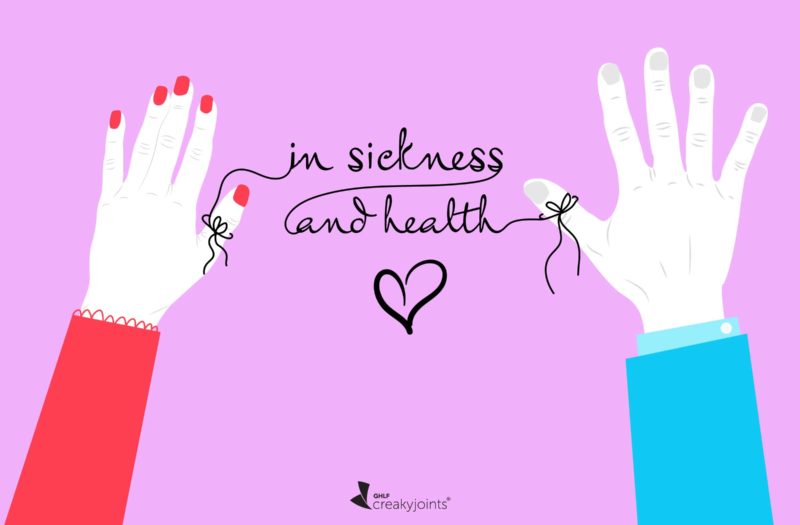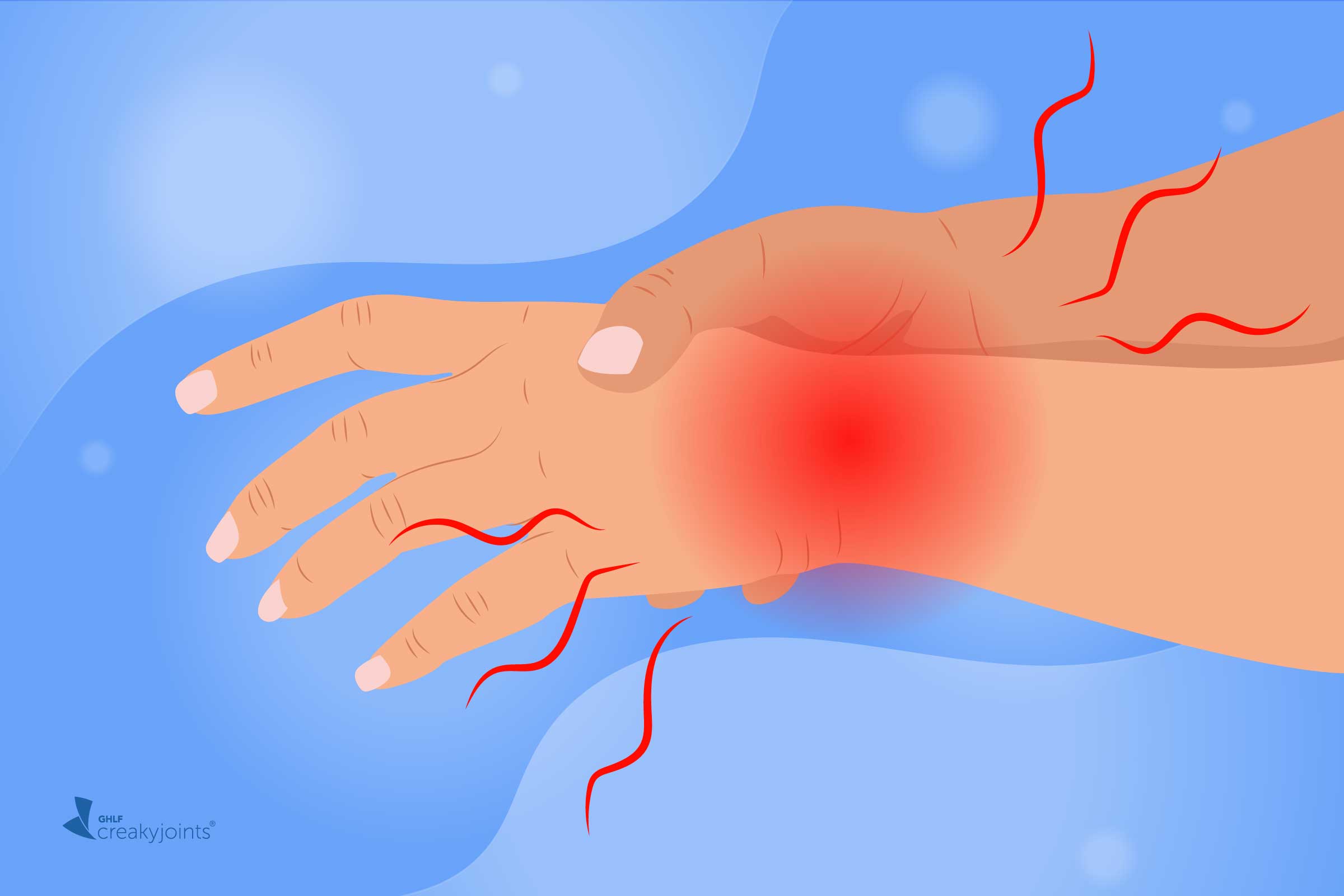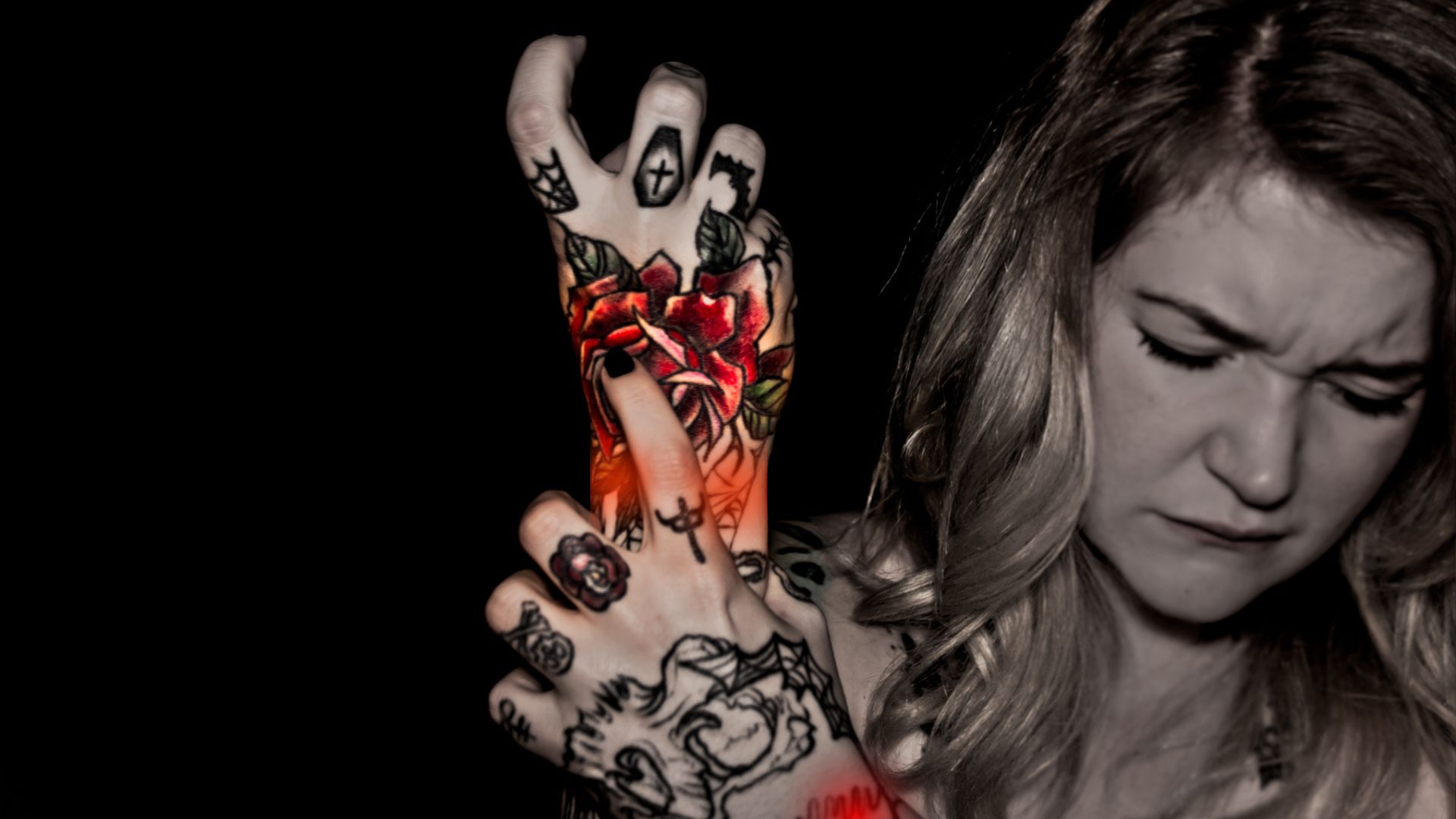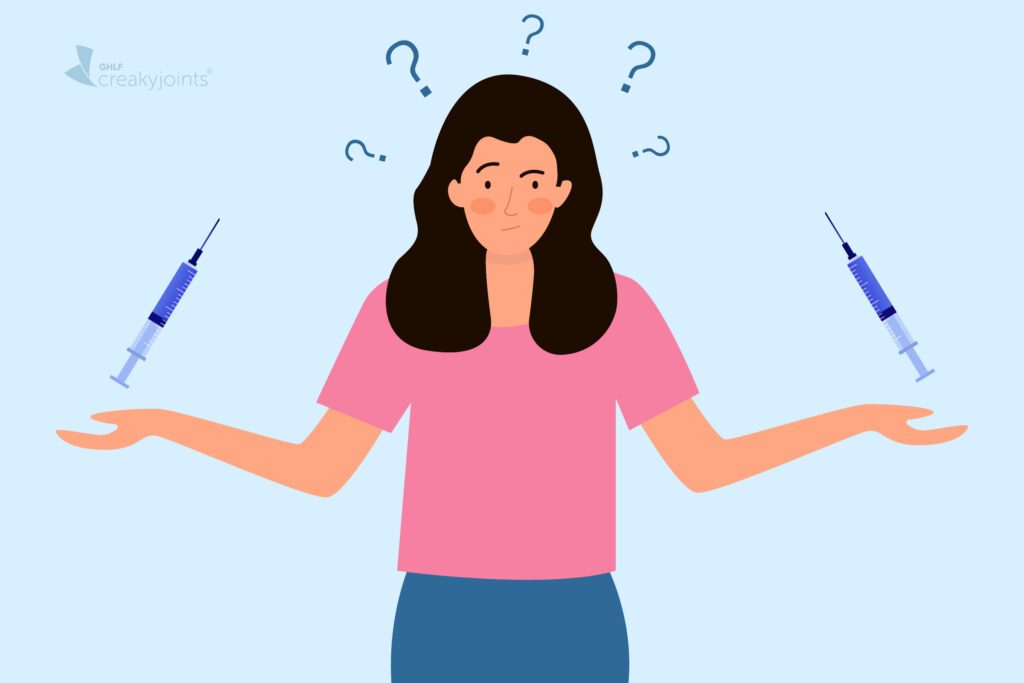My husband, Steve, and I met while working backstage for a local musical theater company. Although we both had some health problems (Steve had psoriasis and I had some structural issues with my feet and hips) we were both generally healthy and active. We especially loved going hiking and camping together or with friends.
All that changed around 12 years ago, when I was diagnosed with rheumatoid arthritis, followed later by fibromyalgia, type 2 diabetes, ankylosing spondylitis, cataracts, spinal stenosis, and a range of other health issues. Some of these involved surgery; nearly all involved medication and other therapies. I’ve written a lot about my own journey since then, but it was only recently, after Steve read one of my personal essays for CreakyJoints, that he commented about his own parallel journey.
We decided that Steve’s story deserved to be heard as much as mine, so I interviewed him in what turned out to be a very open and candid discussion.
These are his words. We hope that sharing them will help other couples in similar situations.
It All Started with a Rheumatoid Arthritis Diagnosis
It’s hard to recollect everything I felt when Rosemary was first diagnosed with rheumatoid arthritis as so much has happened with her body since. I probably thought the initial diagnosis of RA was an “old-people’s” disease.
I think she was initially battling through and we didn’t really understand how it was affecting her in the first year or so. She maintained her working role and tried to get through in a normal job. Over time, it became obvious that she wasn’t physically capable of performing her job to the level that she wanted to.
I was in disbelief as Rosemary gradually started adding more conditions to her list. I understood that the cataracts and type 2 diabetes were caused by her long-term use of steroid medication, so I handled that reasonably well.
Other challenges that arose, such as her urgent surgeries, definitely scared me. I love my wife and didn’t want to lose her. But, deep down, I knew her doctors would take care of her and I was pretty confident that she was going to come through it all OK. Fortunately, I had a little bit of support around me as well.
People still suggest various “cures” for Rosemary’s conditions. I admit to doing research on potential cures myself in the early days. However, we are both very stubborn and have to do things our own way. It’s taken us a long time to recognize that sometimes we are both right and sometimes we are both wrong.
Looking back, the list of ailments she has developed is staggering. It’s amazing that she is still going, in a way. I have trouble keeping track of it all, but so do her doctors, so I think she understands that.
How Chronic Illness Has Affected Us Socially
Rosemary’s RA had a big impact on us as a couple from the start in terms of things that we could do. It put everything on stop virtually right away. She was often in pain so we stopped doing our usual walks and hikes. That meant it affected us socially as well because a lot of our friends used to do the walks with us.
I feel that I dropped off socially from that point on in my own way. I probably started spending less time with other people. Instead, I’ve added to, or spent more time on, my solo hobbies. In some ways, our change in social activities has actually benefitted me. For example, over the last four or five years, I’ve spent much more time playing my musical instruments.
Of course, as Rosemary started to work less, it affected our financial situation as well. We haven’t had a proper holiday [vacation] since before her RA diagnosis. We have had short breaks away together, but not anything more than a few days. We’ve been less likely to do things like this because of the change in our financial circumstances and with her health in particular.
Some days she is up for doing things and some days she isn’t. We have sometimes postponed our plans on the day, but, more often than not, we make more flexible or suitable plans beforehand.
Our Emotional Ups and Downs
Occasionally, Rosemary’s conditions or limitations have led me to be angry, upset, or frustrated. For example, our reduced income and increased medical expenses often mean that we can’t do things we’d really like to do. I haven’t always dealt with the financial aspects of our situation that well, either.
I came quickly to realize that her body clock was not functioning in the same timeframe as mine. Now, the only times it gets really frustrating for me is when she is still asleep and we need to get going somewhere or I want to do some noisy things around the house.
We try to share the load when it comes to things like grocery shopping, housework, cooking, or whatever. Sometimes, the person in the least pain does the job but it can be hard to do my share of the housework when my best time is in the morning and my wife is still in bed.
However, I’m fully aware that sometimes it’s been my health or decisions that have had a negative impact on us. I haven’t had nearly extent of the issues she’s had, but I have endured various physical and emotional issues over the same period and she is just as understanding with me.
I was brought up with a “grin and bear it” approach, so I’ve toughed it out in some ways. However, my emotions regarding our situation do come out from time to time. Sometimes I wonder if I am responsible for everything. Why aren’t I doing more? Should I be doing more (or less)?
Sometimes, I even feel sheer panic about the future and how we’ll continue to cope with everything.
I’ve never been the kind of person who is really good with mentally responding to things, I guess. So, I probably had difficulty interpreting her situation along with everything else that was going on around me. Rosemary also had many times when she just seemed to want to hide away and not deal with things, especially when she was in a lot of pain.
We’ve both made mistakes in how we react to each other. Some of the time, I’ve probably behaved very badly, but that was probably more because I was feeling down about something else at the time. I’ve tried to be a rock for her most of the time, though. Overall, I feel we have each been highly supportive of the other.
Chronic Illness Has Strengthened Our Relationship
I think we have both gradually adapted better to the situation. There was irritation between us at first, but I think there is less of it now. I think it has actually been good for us because it has forced us to learn to be more tolerant and patient in areas where maybe we weren’t before. We give each other much more emotional space now.
We have been together for almost 30 years and, though our collective health problems could have driven us further and further away from each other, I think the fact that we’ve both been dealing with a level of pain has brought us closer together. We have a better understanding now than we did even six years ago of how to cope with things. It has taken time.
I’ve witnessed a kind of versatility that has come out of Rosemary. She has always pushed herself to do things. But, I think, what she has achieved in terms of dealing with her illnesses and what she has done to support other people is impressive by any standards whatsoever. I think she has handled it really, really well and has become more mature in a lot of aspects.
I find Rosemary to be a wonderful mentor (for me and others) in how to change what you can and move on from what you can’t. I recognize her due diligence in this sort of thing and I really appreciate it.
I probably don’t say this to her on a day-to-day basis because it is not a conversation that we’d normally have.
My Advice to Other Partners of People with Chronic Illness
I married my wife in sickness and in health and, as far as I am concerned, that was a vow. To the other partners out there, regardless of how long you’ve been in your relationship, I’d offer the following pieces of advice.
It’s ok to be scared or angry because it is part of what you have to go through. You need to be a bit forgiving because we all have an angry child inside of us somewhere and, occasionally, that angry child can explode inside either of you. You need to have the patience to deal with these ups and downs because, believe me, if you are angry about the situation, your partner is undoubtedly angry about it, too. If you are not patient, you tend to fall into an argumentative state and it gets you nowhere.
Work hard on the communication between you. Try to be a good listener. If you want to get something across, explain to your partner that you have something that you want to say. I would try to ensure they are in a good mental state to have the conversation because you’re under stress and they’re under stress.
Get comfortable with uncertainty. If you really want to be there for your partner, you need to give them the support and love that they are craving. It is a difficult time for both of you because you’ve got no idea what your future together holds. It is possible that some of your partner’s symptoms will fluctuate or improve and also possible that they won’t. Whatever happens, if you are both willing to go through the hard yards, you can continue to have a happy relationship and a wonderful future together.
Not Sure What’s Causing Your Pain?
Check out PainSpot, our pain locator tool. Answer a few simple questions about what hurts and discover possible conditions that could be causing it. Start your PainSpot quiz.






